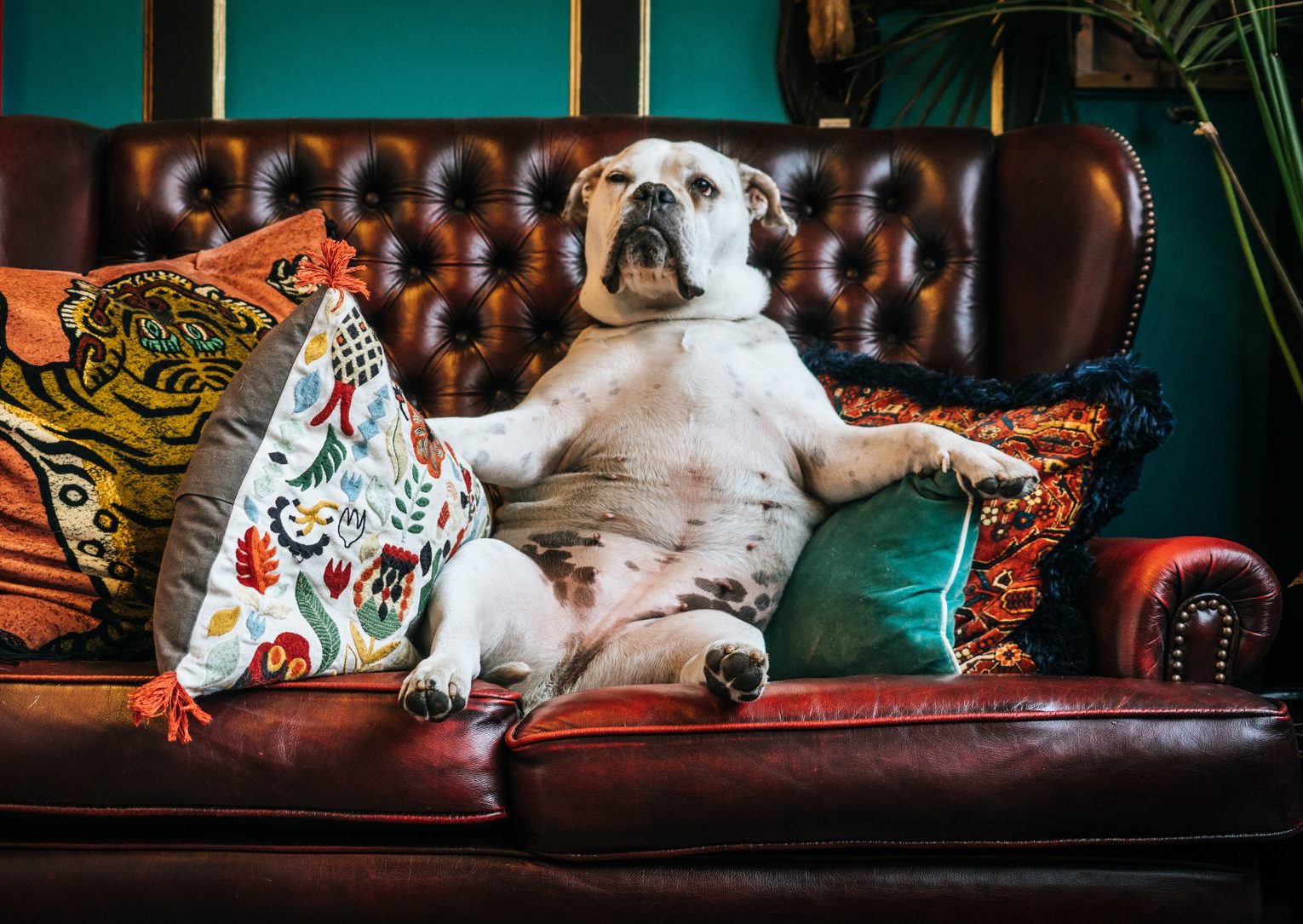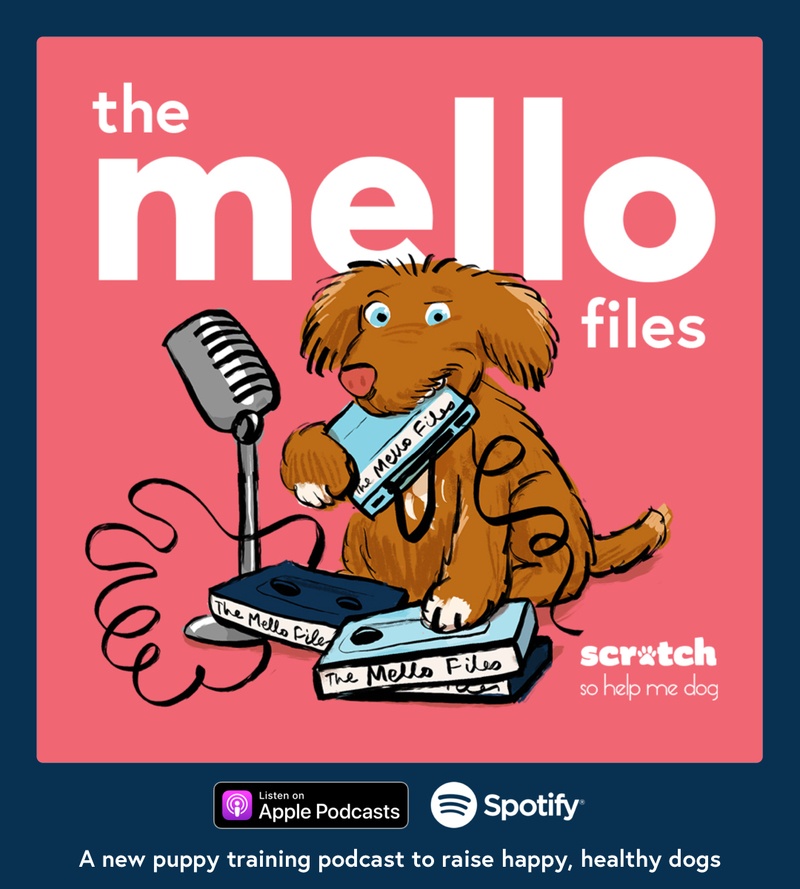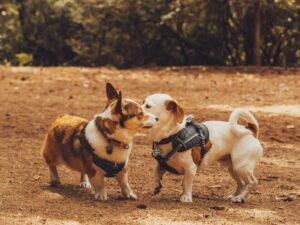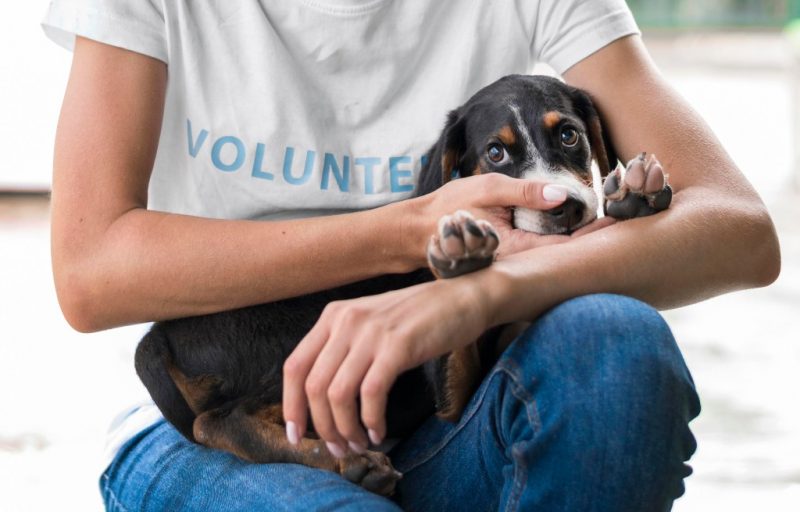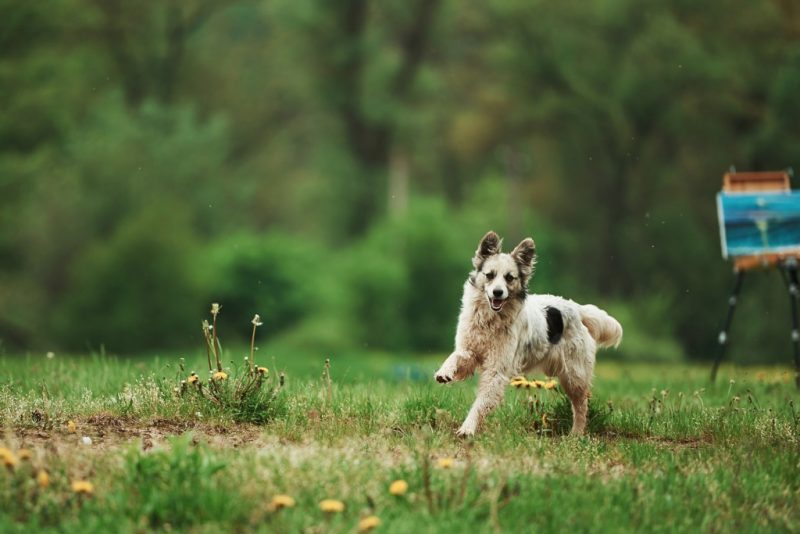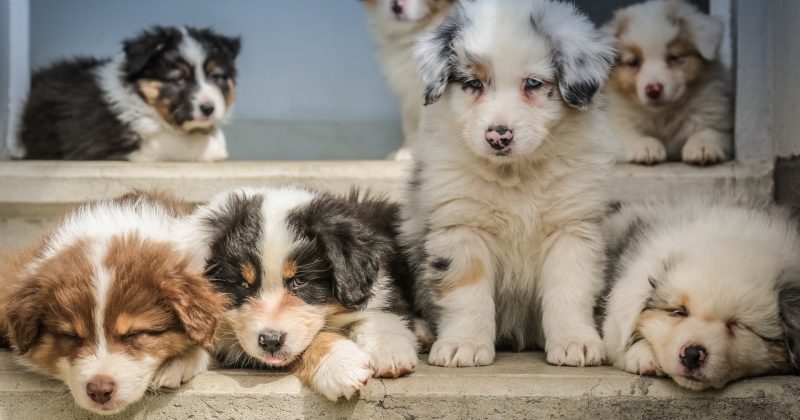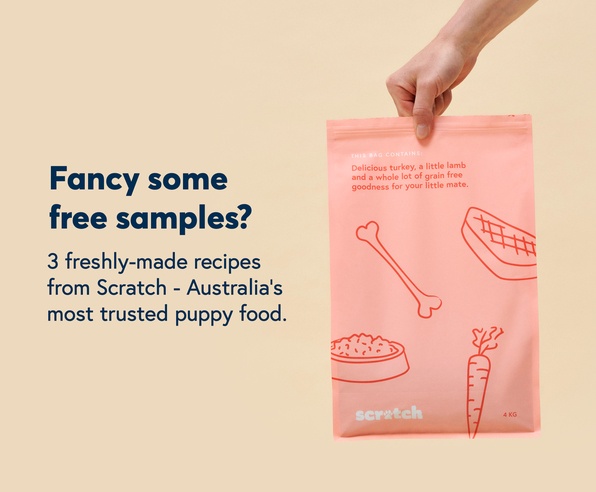Dogs eat quickly for many reasons. Some breeds and individuals are more likely to scoff their food than others. If your dog eats too fast, it can cause a variety of severe health issues. Thankfully there are some easy ways to address the problem.
Why do dogs eat quickly?
- If you have multiple dogs, they may be engaged in competitive eating. Each one is trying to eat as fast a possible to avoid having their food stolen, and have a chance at taking the other dog’s food!
- Dogs can not control when they are fed. That is unless they have worked out how to open the pantry or fridge… This means they may feel insecure as to when their next meal will arrive. When it does they then eat it fast.
- If the food has high amounts of animal protein and fat, they might eat fast because it tastes so darn good! If their food is full of refined carbs and not much fibre, they may be super hungry. This can make your dog eat too fast.
Health problems likely if your dog eats too fast
If your dog eats too fast it can lead to higher risks of life-threatening health problems.
- Excessive burping and farting.
- Choking, gagging, vomiting.
- Canine Bloat (Gastric Dilation) is a real risk for large and giant breeds. The stomach ends up with too much gas and it twists, blocking off entry and exits. It progresses rapidly and if not treated quickly, results in death. Great Danes, Bloodhounds, Wolf Hounds, German Shepherds, Irish Setters, Akita, Standard Poodles and Boxers are at higher risk. If you have a Large or Giant breed or a dog that has had bloat before, this link takes you to detailed, researched-based advice that you need to read.
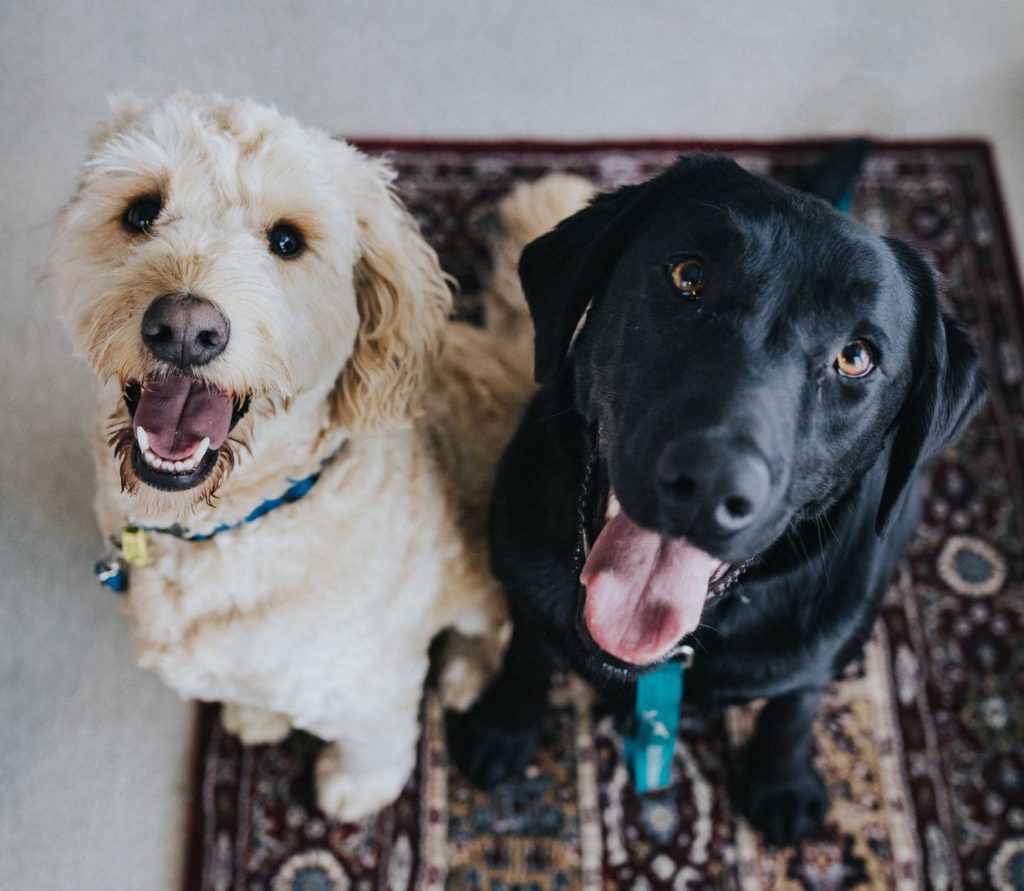
How to stop my dog from eating too fast
As there are different reasons that dogs tend to eat too fast, there are various things you can do to slow them down.
- Have separate areas for each dog to eat. This will help with competitive eaters. Being in their crate is a good solution for this. They will feel safe and secure and learn that no one is going to steal their food if they slow down.
- Feed on a schedule. By being regular with the time of day you feed your pup, it can reduce their anxiety around when they are next fed.
- Feed smaller amounts more often. Increasing the number of times you feed your pooch(but the same total quantity) makes food seem more plentiful. Also when each meal time comes around they may be less hungry. Feeding less each meal dramatically reduces the chance of bloat.
- Physically slow the feeding down. This relies on making it harder for your dog to eat too fast. You can feed small amounts in multiple locations, so they have to move between each mouth full. There is a large variety of “Slow feeder bowls” that put obstacles inside the bowl to make it harder to be a gutz(check out our review of Slow Feeding Bowls). For next level speed reduction there are puzzle games and toy feeders that make your pup work for their food.
My personal experience
Snoop, my Beagle, is a gutz! He has always loved food and ate quickly. When we changed to Scratch Pet Food’s Grain Free Kangaroo, he became a bit obsessed. He will do anything for it, prefers Scratch to any other training treat and basically inhales his food. It was only taking 60 seconds to eat breakfast or dinner, and there were breaks for gaging included in that time! Check out the original feeding video below.
It was time to take some action. He got a “Slow Feeding Bowl”. It was more of a silicon mat then a bowl really: with patterns to make it harder for him to be a gutz. He still managed to get everything a lot faster than I had anticipated. It now takes about 2 mins! The surprising thing was that even this extra 60 seconds completely stopped the gaging from occurring. Below is the slow feeding bowl video of Snoop eating.
If your dog eats too fast, it is time to help them slow down. Check out our review of slow feeding bowls or other canine behaviour articles.

